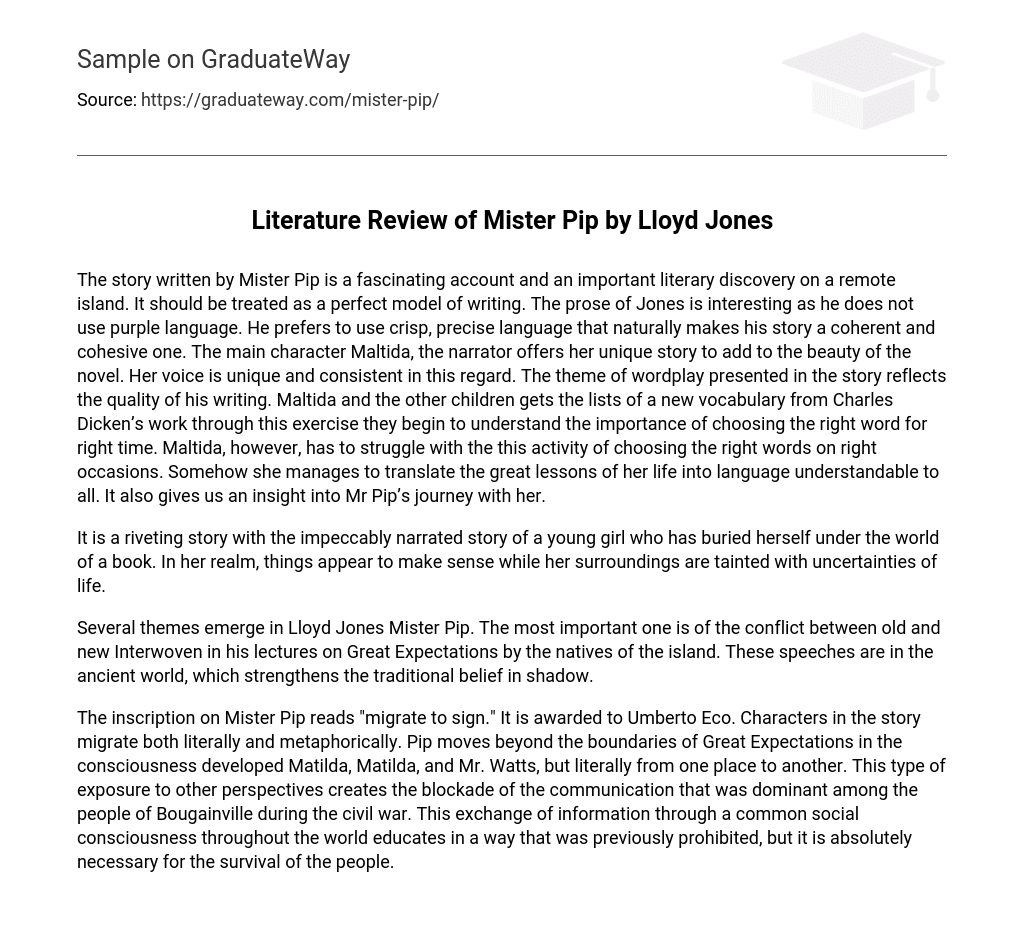The story written by Mister Pip is a captivating and significant literary discovery on a remote island. It should be regarded as a flawless example of writing. Jones’s prose is engaging as he avoids using extravagant language. Instead, he opts for precise and clear language, resulting in a coherent and unified story. The narrator, Maltida, who is the main character, adds her own unique story, enhancing the novel’s beauty. Her voice remains consistent throughout. The story presents the theme of wordplay, showcasing the author’s exceptional writing skills. Through an exercise where Maltida and the other children receive vocabulary lists from Charles Dicken’s work, they begin to grasp the importance of choosing the right words at the right time. While Maltida struggles with this task, she eventually manages to convey the valuable lessons learned through her life experiences in language that is accessible to all readers. Additionally, it provides insight into Mr Pip’s journey alongside her.
It is a captivating tale that is flawlessly narrated, portraying a young girl who has engulfed herself in a book to escape the ambiguous nature of her surroundings.
The novel Mister Pip by Lloyd Jones explores several themes, with the most significant one focusing on the conflict between tradition and modernity. This struggle is evident in the lectures given by the island’s natives about Great Expectations, where ancient wisdom is showcased, reinforcing the traditional belief in shadow.
The inscription on Mister Pip is “migrate to sign” and it is given to Umberto Eco. In the story, the characters migrate both literally and metaphorically. Pip moves beyond the limitations of Great Expectations in the minds of Matilda, Matilda, and Mr. Watts. Moreover, Pip travels physically from one place to another. This exposure to different perspectives creates a barrier to communication that was prevalent among the people of Bougainville during the civil war. The exchange of information through a shared social consciousness worldwide offers education that was once forbidden but is now essential for the survival of the people.





